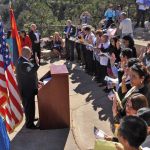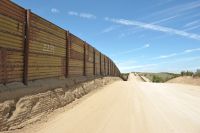Across the globe, people are on the move. Some migrate by choice – in pursuit of educational opportunity or economic mobility. But many are forced to flee their homes because of conflict, violence or environmental disaster.
Worldwide, the United Nations reports that there are currently 65.6 million people forcibly displaced. Europe is dealing with what is being called the biggest refugee and displacement crisis of our time. Meanwhile, in the United States, there are an estimated 11 million undocumented immigrants, representing 3.4 percent of the total population.
Global migration is one of the biggest issues facing people all over the world. According to Stanford researchers, it is also one of the most misunderstood.
“When it comes to immigration policy, people tend to rely on anecdotes and ideology rather than evidence,” said Duncan Lawrence, executive director of Stanford’s Immigration Policy Lab.
Lawrence and other Stanford scholars are researching immigration to help people better understand the issue. Here are some of their findings.





















